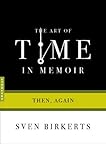 |
| purchase here |
 |
| Author Ryder Islington |
Ms Islington discusses the question: What Is Psychological Drama?
I wish there was a section at the book store just for psychological drama. Unfortunately, there is no such place because there is no such genre. Almost every genre can have psychological drama in it, though I like it in mysteries, thrillers and suspense. Psychological drama is all about what is going on inside the head that induces, or forces, a person to take certain actions. What goes on inside the head of a girl who watches her dad beat her mom for years, and then finds herself in the same kind of relationship? Why does that happen? What goes through the mind of a man who is attracted to five year old girls? Why does he feel this need? What makes a person feel the need to set fires and watch them as if they are lovers?
One of the first things I learned as a writer was that characters must act out of motivation. The reader has to see why the character is taking each action. But I couldn’t stop with a simple answer. Women are attracted to men like their dads. We live lives that are modeled for us by the adults in our lives. That might satisfy the reader. It doesn’t satisfy me.
I want to know how that woman feels, what makes her feel it, and what it takes to get her to feel differently and thereby act differently. I want to put the reader in the place of the character and have them feel what the character feels. I like to go for that deep emotional motivation that forces the character to act.
In my debut novel, Ultimate Justice, A Trey Fontaine Mystery, I made sure each character had motivation and tried to bring the reader right into the middle of the psychological drama occurring inside those characters. This story is about serial killers, a drug addicted FBI agent, and two homicide cops, one Black and one female, in the Deep South. And it’s not all about the action. Yes, there are fights, and deaths, and fights to the death. But every action is backed by the deep seated pain, anger, or need, of the characters.
I watched dozens of movies, read dozens of books and did research online, in an effort to really get down to the real reason people who seem perfectly ‘normal’ can do things so completely out of character—at least it looks that way from the outside. And sometimes it’s true. Sometimes people just snap. Sometimes we make bad decisions that no one could see coming. Sometimes we just don’t think. But deep down inside, something lurks.
Often, in thriller or suspense movies or books, there’s something in the basement. Everyone knows it. But the character just has to go down there and see. And it always ends badly. Sometimes, that’s the way the mind is. In the basement of the mind, locked away where no one can see, is a scary, ugly, dangerous creature, just waiting for the perfect set of circumstances to set it free.
Do your research. And then, when you’re writing those scenes that need some punch, dig deep down and see if you can find that creature. You may find it in your character. Or you may find it in yourself. (Ryder Islington, 2011)
*Note: For blog tour schedule, go to: ll-publications or Ryder Islington's blog
If you enjoyed this post, please consider leaving a comment



































